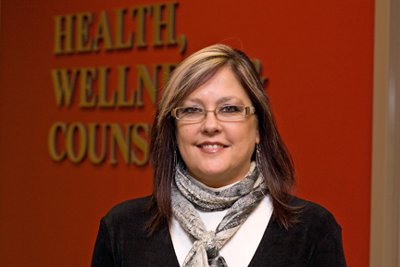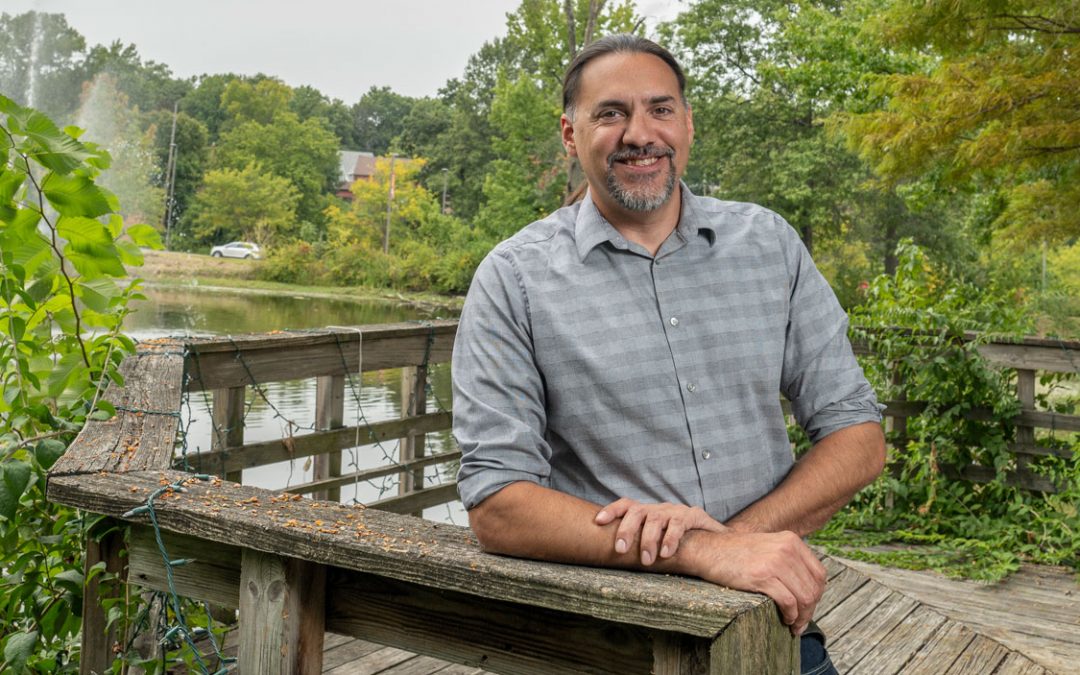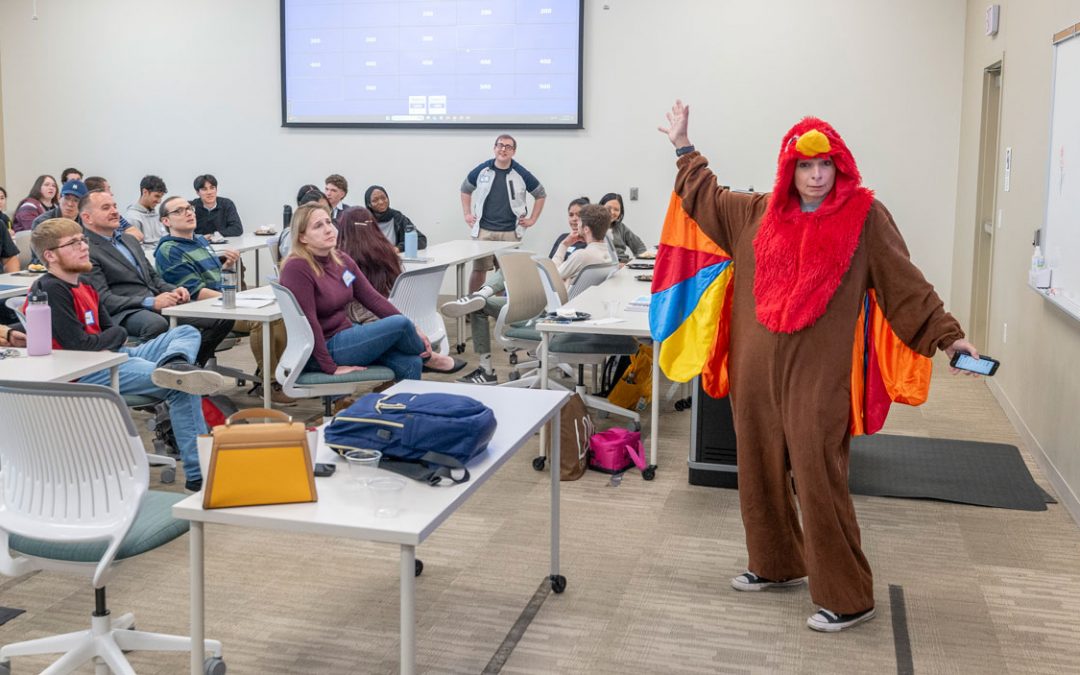
Marie Mueller received UMSL's first doctor of nursing practice degree Saturday. Mueller, the clinic coordinator at University Health Services at UMSL, also has earned a BSN and MSN from UMSL.
Marie Mueller initially had no interest in pursuing a doctorate in nursing. But when the College of Nursing at the University of Missouri–St. Louis unveiled its Doctor of Nursing Practice degree in 2008, she was among the first to sign up.
“I knew I’d never be a PhD in nursing,” Mueller said. “It’s just not where my interest lies. I really like working with patients in clinic.”
That’s where the DNP comes in. The degree is relatively new to academia. The American Association of Colleges of Nursing first endorsed it in 2004.
Unlike a PhD in nursing, the DNP focuses more on practice than research. DNP degrees are designed to help graduates do the following:
• Generate strategies to improve health care in complex clinical environments,
• Help shape health care delivery and policy and
• Lead the health care community by providing excellence in advanced clinical nursing practice.
Mueller is already an alumna (BSN 2002 and MSN 2004) and clinic coordinator in University Health Services at UMSL. She said she feels nurse practitioners – especially DNP recipients – will play a major role in future practice and policy changes in the health care system.
“There’s a lot wrong with our health care system right now and nurse practitioners are, to me, an integral part of the reform,” she said. “The Institute of Medicine feels that way and I agree.”
The DNP could also help fill a void created by more doctors opting to be specialists rather than primary care physicians.
“There is a huge shortage of primary care people, which is where we fit in,” Mueller said. “We’re perfect for primary care.”
Obtaining the degree wasn’t without its challenges for Mueller. In addition to pursuing her doctorate, she worked full time and had a family with two children. But as she likes to tell most people: “You can get a lot done in a day, if you need to.”
“My lunch break? I was working on something,” she said. “My evenings were filled with school. Weekends? I would literally sit for 14 hours at a computer Saturday and Sunday.”
Nancy Magnuson, associate dean for advanced nursing education at UMSL, said Mueller did even more and did it well.
“She has been a leader among her DNP student peers, encouraging the four students in the first DNP cohort along the way. And she is well respected by her colleagues,” Magnuson said. “Her patients often send her thank you notes and cards commenting not only on her expert care, but her compassion and concern for them as well.”
Magnuson further pointed to Mueller’s efforts to help the College of Nursing with creating marketing materials for the DNP.
Mueller also worked on a project to help prevent methamphetamine use in Missouri. The program will target kindergarten through second grade students in rural Missouri. Its goal is to prevent the initiation of methamphetamine use. Funding for the program, which is scheduled to begin in the fall, comes from a $250,000 grant from Community Oriented Policing Services, or COPS, an office within the Department of Justice.
More information:
umsl.edu/divisions/nursing/academic/doctorate/dnp.html
umsl.edu/services/health














